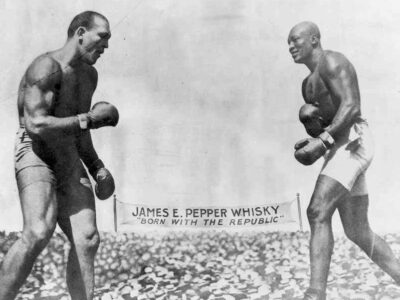Published: June 30, 2021 8.11am EDT
An audacious Black heavyweight champion was slated to defend his title against a white boxer in Reno, Nevada, on July 4, 1910. It was billed as “the fight of the century.”
The fight was seen as a referendum on racial superiority – and all hell was about to break loose in the racially divided United States.
Jack Johnson, the Black man, decisively beat James Jeffries, nicknamed “the Great White Hope.” Johnson’s triumph ignited bloody confrontations and violence between Blacks and whites throughout the country, leaving perhaps two dozen dead, almost all of them Black, and hundreds injured and arrested.
“No event yielded such widespread racial violence until the assassination of Dr. Martin Luther King, Jr., fifty-eight years later,” Geoffrey C. Ward wrote in his biography of Johnson, “Unforgiveable Blackness.”
Johnson’s victory, in the manliest of sports, contradicted claims of racial supremacy by whites and demonstrated that Blacks were no longer willing to acquiesce to white dominance. Whites were not willing to give up their power. The story has a familiar ring today, as America remains a country deeply divided by race.
This article appears in its entirety at the website The Conversation. It can be read here.
